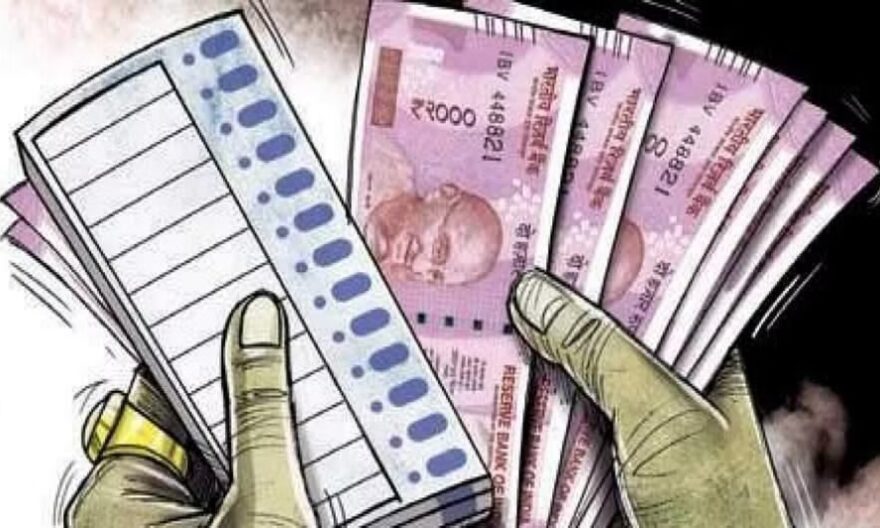
The Centre told the Supreme Court that the issue of black money’s use in elections is a common concern faced by nearly every country, including India. They asserted that the electoral bonds scheme represents a deliberate effort to combat the problem of “unclean money” in the electoral process.
Solicitor General Tushar Mehta, representing the Centre, made these arguments before a five-judge constitution bench led by Chief Justice D Y Chandrachud. He emphasized that the scheme should not be viewed in isolation when addressing the issue of black money.
Mehta pointed out various measures undertaken by the government to address black money, including the adoption of digitized payments and the crackdown on 2.38 lakh “shell companies” between 2018 and 2021.
He stated, “The use of black money in elections and politics, in general, and elections, in particular, is a concern faced by every country. Each country deals with its specific issues depending on the circumstances. India is also grappling with this problem.”
Despite numerous attempts and mechanisms, the problem of black money had not been effectively addressed due to systemic failures. Therefore, the present electoral bonds scheme is a conscious and deliberate attempt to ensure clean money flows into the banking system and the electoral process.
The constitution bench is currently hearing arguments related to petitions challenging the validity of the electoral bonds scheme, which is used for funding political parties.
Mehta highlighted the role of digitalization in India, with approximately 750 million mobile internet users and one new internet user added every three seconds. He noted that digital payments in India are nearly seven times that of the US and Europe combined, and three times that of China.
Regarding the confidentiality of the scheme, Mehta stressed that if the element of confidentiality is removed, the scheme itself would be compromised.
Responding to the argument that the electoral bonds scheme has disproportionately benefited the ruling party, Mehta noted that it is a common practice for the ruling party to receive a significant portion of donations. The Chief Justice inquired about the reason for this, to which Mehta explained that this pattern is based on data and not the government’s stance.
Mehta added that previously, due to fear of victimization, the safest way to make donations was in cash, which converted clean money into black money and was detrimental to the economy.
The bench raised the issue of partial confidentiality, suggesting that individuals in power might have access to details. Mehta argued that the information is completely confidential, but the bench expressed differing viewpoints on this matter.
Regarding ensuring a level playing field, the Chief Justice proposed that all donations should be given to the Election Commission of India, which would then distribute them equitably. Mehta responded by stating that this could discourage contributions and lead to more cash transactions.
During the hearing, senior advocate Vijay Hansaria, representing an intervenor, stressed that free and fair elections are a fundamental aspect of the Constitution. He argued that anonymous corporate funding of political parties, essentially as a form of kickback, undermines democratic governance.
Senior advocate Sanjay Hegde, representing another intervenor, also presented his arguments.
The hearing was inconclusive and will resume on Thursday.
The electoral bonds scheme, introduced on January 2, 2018, was promoted as an alternative to cash donations to political parties, aiming to enhance transparency in political funding. According to the scheme’s provisions, electoral bonds can be purchased by Indian citizens or entities incorporated in India. Only political parties registered under Section 29A of the Representation of the People Act, 1951, and securing at least one percent of the votes in the last Lok Sabha or state legislative assembly election are eligible to receive electoral bonds.




